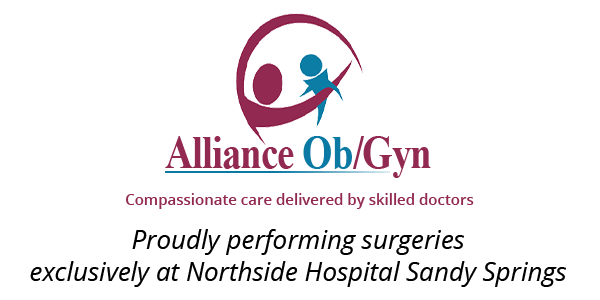
The Role of Genetics in Pregnancy: Screening and Considerations
Pregnancy is a journey filled with joy, anticipation, and important decisions. One significant aspect of prenatal care involves understanding the role of genetics in pregnancy and the available screening options. At Alliance Ob/Gyn in Alpharetta, GA, we are committed to providing comprehensive prenatal care that includes guidance on genetic screening and considerations to help expectant parents make informed choices. In this blog, we will explore the importance of genetic screening, types of tests available, and key factors to consider when planning your prenatal care.
Why is Genetic Screening Important in Pregnancy?
Genetic screening in pregnancy allows expectant parents to assess the risk of their baby inheriting certain genetic conditions or chromosomal abnormalities. While most babies are born healthy, some may be at risk for genetic disorders that can impact their development and health. Early identification of these risks through screening can provide valuable information, allowing parents and healthcare providers to prepare and make informed decisions about further testing and management.
Types of Genetic Screening Tests in Pregnancy
- Carrier Screening: Carrier screening is typically performed before or in early pregnancy to determine if either parent carries genes for certain inherited conditions. These tests are especially important for couples with a family history of genetic disorders or those belonging to ethnic groups with higher incidences of specific conditions, such as cystic fibrosis, Tay-Sachs disease, sickle cell anemia, and spinal muscular atrophy. If both parents are carriers of a specific genetic condition, there is a 25% chance their child could inherit the condition.
- First-Trimester Screening: First-trimester screening is conducted between 11 and 14 weeks of pregnancy and combines a blood test with an ultrasound called nuchal translucency screening. This screening assesses the risk of chromosomal abnormalities such as Down syndrome (trisomy 21) and trisomy 18. It provides early information to help guide decisions about further testing.
- Non-Invasive Prenatal Testing (NIPT): NIPT is a blood test that analyzes small fragments of fetal DNA circulating in the mother’s blood. It screens for chromosomal abnormalities such as Down syndrome, trisomy 13, trisomy 18, and sex chromosome abnormalities. NIPT is highly accurate and can be performed as early as 10 weeks of pregnancy. However, it is still considered a screening test rather than a diagnostic test.
- Second-Trimester Screening (Quad Screen): The second-trimester screening, or quad screen, is a blood test performed between 15 and 20 weeks of pregnancy. It measures four substances in the mother’s blood to assess the risk of neural tube defects (such as spina bifida) and chromosomal abnormalities like Down syndrome. This test is often combined with first-trimester screening for a more comprehensive assessment.
- Diagnostic Testing: If a screening test indicates a higher risk for a genetic condition, diagnostic tests may be recommended to confirm the diagnosis. These tests include:
- Chorionic Villus Sampling (CVS): Conducted between 10 and 13 weeks of pregnancy, CVS involves taking a small sample of placental tissue to test for chromosomal abnormalities and specific genetic conditions.
- Amniocentesis: Performed between 15 and 20 weeks of pregnancy, amniocentesis involves taking a sample of amniotic fluid to test for chromosomal abnormalities, genetic disorders, and neural tube defects.
Key Considerations for Genetic Screening
- Understanding Your Family History: A detailed family history provides valuable insight into potential genetic risks. Certain genetic conditions are more prevalent in specific ethnic groups, and knowing these risks can help you and your healthcare provider decide which screenings may be most appropriate.
- Weighing the Risks and Benefits: Genetic screening can provide important information but does not guarantee a healthy baby or predict all potential outcomes. Discuss the potential risks, benefits, and limitations of each screening option with your healthcare provider to make an informed decision that aligns with your values and goals.
- Emotional Preparedness: Genetic screening can bring emotional challenges, particularly if results indicate a higher risk of a genetic condition. Being prepared for a range of possible outcomes and discussing them with a genetic counselor or healthcare provider can help you navigate the emotional aspects of screening and decision-making.
- Options Following Screening Results: If a screening test suggests an increased risk for a genetic condition, you may have several options to consider. These may include additional diagnostic testing, consultations with specialists, or planning for specific care or interventions during pregnancy or after birth.
- Genetic Counseling: Genetic counseling is an integral part of the genetic screening process. Genetic counselors are trained to help families understand complex genetic information, discuss potential outcomes, and provide support in making decisions that best suit their needs.
The Role of Personalized Prenatal Care
At Alliance Ob/Gyn in Alpharetta, GA, we believe in personalized prenatal care that considers each family’s unique genetic background, health history, and concerns. We offer comprehensive genetic screening options and collaborate with genetic counselors to provide thorough guidance and support throughout your pregnancy journey.
Conclusion
Genetic screening plays a crucial role in modern prenatal care by helping expectant parents understand potential risks and make informed decisions for their family. At Alliance Ob/Gyn, we are dedicated to providing compassionate, individualized care, including genetic counseling and screening services, to support you every step of the way.
If you have questions about genetic screening or would like to discuss your options, please contact us to schedule a consultation. We are here to guide you through every stage of your pregnancy with care, knowledge, and understanding. https://allianceobgyn.com/contact-us/
Further Reading: ACOG



